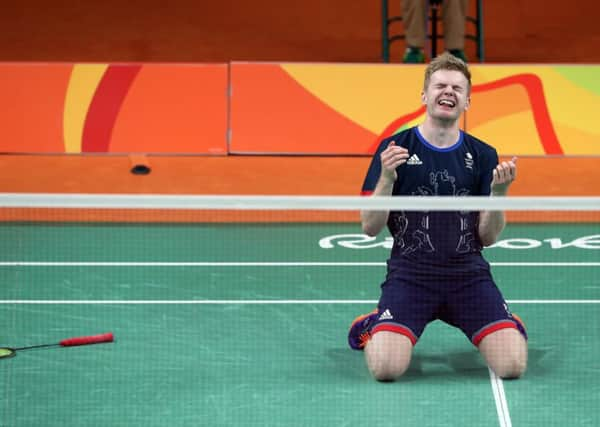Yorkshire badminton players fear for sport's future as Olympic funding axed


The Huddersfield-born player and his partner went into the Rio Olympics ranked number 22 in the world but managed to win a bronze, Britain’s first badminton medal since 2004.
But the chance of finding the county’s next badminton success story have been hit as the sport, along with six others, had it confirmed this week they are to lose their Olympic funding in the run-up to Tokyo 2020.
Advertisement
Hide AdAdvertisement
Hide AdOlympic sports archery, badminton, fencing, table tennis and weightlifting, and Paralympic sports goalball and wheelchair rugby, will now receive no support from the lottery-backed agency after failing to overturn an appeal against a UK Sport decision announced in December.
In total, UK Sport has dished out £345m to 31 Olympic and Paralympic sports for their Tokyo preparations, £2m less than the record amount invested in the Rio cycle, which ended with GB second in both medal tables.
Five of the seven sports dropped by UK Sport for Tokyo did receive funding for Rio, with badminton getting £5.7m.
The racket sport, which asked for less than £4m this time, lost its funding despite the bronze medal win in Rio.
Advertisement
Hide AdAdvertisement
Hide AdLouise Holt, secretary of the Huddersfield and District Badminton League, says the funding changes will make it more difficult to unearth future success stories like Marcus Ellis and encourage talented youngsters to pursue the sport to a higher level.
She said Ellis had visited local schoolchildren to inspire them to take up the sport.
“He has done a tour and gone back to his old primary school. Off the back of that, three schools started to deliver badminton.
“But if you have got no future medal hopes in the future, you are not going to keep that momentum going. Him winning that medal has already had a positive impact locally.
Advertisement
Hide AdAdvertisement
Hide Ad“We are just devastated about the cuts. It will impact at an elite level but will filter down to the local level.
“There are one million people who play badminton every month, it is so accessible and so popular.
“But if there is no pathway to the top, people will go elsewhere.”
The arrival of lottery funding, channelled through UK Sport’s “no compromise” approach, has revolutionised British sport over the last 20 years, taking Team GB from 36th in the medal table in Atlanta in 1996 to second in Rio.
Advertisement
Hide AdAdvertisement
Hide AdBut UK Sport chief executive Liz Nicholl said the flow of public money – including a Government promise to underwrite lottery forecasts to the tune of £25m over the next three years –cannot be relied upon forever.
Nicholl said: “We’ve got a significant Government underwrite on this cycle which has shored up our ability to invest in medal success and to have the aspiration to win more medals and create more medallists. There is no guarantee of that in the future.
“One of the big challenges we will have over this four-year cycle is to look at whether there is an alternative funding source that we as a system can collectively create which will reduce our dependency on public funding.
“We have had to draw a line here on where we can fund down to and we’re disappointed that we can’t fund every sport with medal potential and we don’t want that line to be drawn any higher because of ongoing increases in costs and international competition expenditure.
“So we know that is a big responsibility. We have got to investigate every possibility because we can’t keep going cap in hand to Government.”